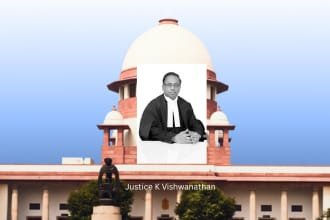In a significant observation during an ongoing legal battle concerning the status of Rohingya refugees in India, the Supreme Court of India on May 8, 2025, reiterated its earlier position that Rohingya individuals deemed to be foreigners under Indian law are liable to be deported. The Court also emphasized that UNHCR (United Nations High Commissioner for Refugees) identity cards do not confer legal protection under Indian domestic law.
The matter was heard by a three-judge bench comprising Justice Surya Kant, Justice Dipankar Datta, and Justice N. Kotiswar Singh, who were addressing multiple petitions concerning the detention, deportation, and living conditions of Rohingyas residing in India.
UNHCR Cards Do Not Provide Legal Protection in India
During the proceedings, Justice Dipankar Datta remarked:
“If they are foreigners as per the Foreigners Act, then they have to be deported.”
The Court referred to its April 2021 interim order, which had already declined to halt the deportation of Rohingya refugees located in Jammu and Kashmir. That order held that the UNHCR-issued identity cards are not sufficient to override Indian statutory law, particularly the Foreigners Act, 1946, which governs the legal status and regulation of foreigners in India.
India is not a signatory to the 1951 UN Refugee Convention or its 1967 Protocol, making the status of UNHCR cardholders precarious in the absence of specific domestic legislation for refugees.
Legal Representatives for the Rohingyas Raise Alarming Claims
Senior Advocate Colin Gonsalves and Advocate Prashant Bhushan, appearing for some Rohingya petitioners, alleged that Rohingya families with valid UNHCR identity cards were picked up by police and deported hours before the hearing.
Gonsalves stated:
“They were with children and family. We have affidavits ready. This is shocking.”
Prashant Bhushan added that Myanmar is not accepting these individuals back, as they are stateless and often denied citizenship even in their homeland. He also argued that the Supreme Court’s earlier order on the non-recognition of UNHCR cards was only an interim directive, and further legal review is necessary to determine their rights under Indian and international law.
Centre’s Stand: No Legal Protection Without a Refugee Framework
On behalf of the Union Government, Solicitor General Tushar Mehta submitted that *India does not recognize the UNHCR identity cards, and since the country is not party to the Refugee Convention, such documents hold no legal value under Indian law.
He reaffirmed the government’s policy that refugees without legal immigration status are liable for deportation under the Foreigners Act, even if they face humanitarian concerns.
The Centre has long held the position that while India continues to shelter refugees on humanitarian grounds, it does so without binding international obligations, and only through executive discretion rather than a codified refugee law.
Statelessness and International Human Rights: A Legal Dilemma
One of the most pressing issues raised by Bhushan is that the Rohingyas are effectively stateless—a position confirmed by Myanmar’s refusal to recognize them as citizens. This raises serious concerns about their right to non-refoulement, a core principle of international refugee law that prohibits the return of individuals to a country where they may face persecution, torture, or inhumane treatment.
While India is not a party to the Refugee Convention, it is a signatory to other human rights treaties such as the International Covenant on Civil and Political Rights (ICCPR) and the Convention Against Torture (CAT)—both of which can be interpreted to prohibit arbitrary deportation and refoulement.
However, Indian courts have often taken a case-by-case approach, balancing national security concerns, statutory limitations, and humanitarian principles.
Supreme Court’s Previous Stance in April 2021
The Supreme Court’s April 2021 ruling had refused to stay the deportation of Rohingya refugees detained in Jammu and Kashmir. At that time, the Court ruled that:
- The Foreigners Act governs the presence of non-citizens in India.
- The UNHCR card is not legally binding and does not override Indian law.
- Deportation of those found to be illegal migrants is within the sovereign powers of the State.
The Court’s reiteration of this stance in 2025 indicates a continued judicial reluctance to intervene in the executive’s refugee policy, unless there is a clear violation of constitutional or statutory rights.
The Debate Over a Refugee Law in India
India currently does not have a comprehensive domestic refugee law, and its treatment of different refugee groups—Tibetans, Sri Lankan Tamils, Afghans, and Rohingyas—varies significantly based on bilateral relations and geopolitical considerations.
Legal experts have long advocated for a uniform Refugee Protection Law that would:
- Define refugee status and rights under Indian law.
- Provide due process for refugee status determination.
- Ensure protection against arbitrary detention and deportation.
In the absence of such legislation, the fate of vulnerable populations like the Rohingyas remains uncertain and often arbitrary.
Next Hearing on May 14
The bench concluded the hearing by stating that no fresh interim directions are required in view of the previous 2021 order. The case has been posted for further hearing on May 14, 2025, where more detailed arguments may be heard regarding statelessness, deportation policy, and humanitarian considerations.
Conclusion
The Supreme Court’s current position in the Rohingya case underscores the legal vacuum in India’s refugee framework, leaving critical questions of statelessness, international obligations, and basic human rights to be addressed primarily through judicial interpretation or executive policy.
While national security remains a legitimate concern, the need for a balanced, codified refugee protection regime has never been more urgent. The case continues to draw attention to the plight of thousands of stateless Rohingya refugees, many of whom face persecution if sent back to Myanmar, and whose legal protection in India remains tenuous at best.
As the case proceeds, all eyes will be on the Supreme Court’s evolving interpretation of India’s constitutional commitment to human dignity and equality, especially for those who find themselves with no country to call their own.


